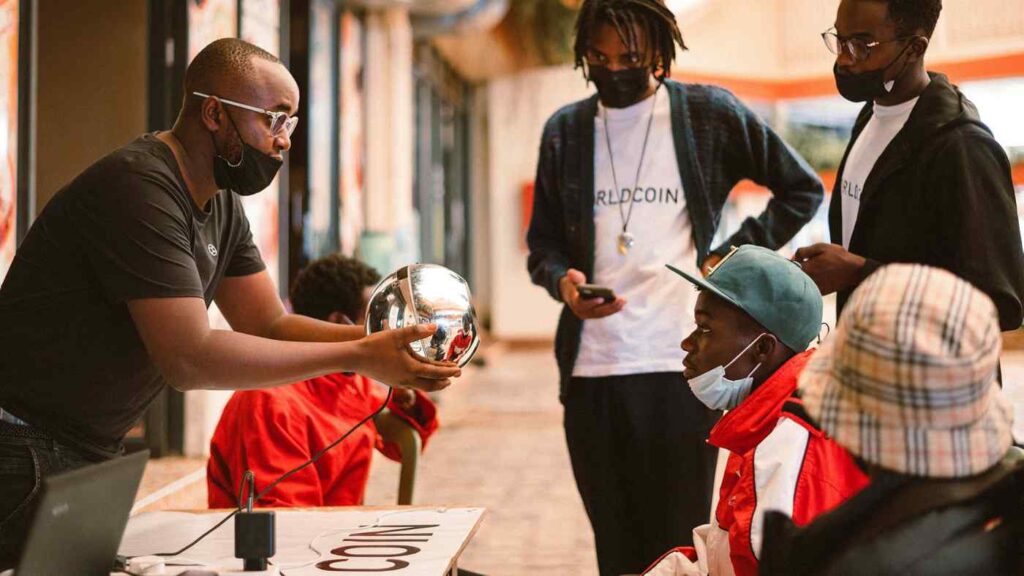-
Biometric data ruling forces WorldCoin to delete all Kenyan user data, setting a legal precedent for African Web3 privacy laws.
-
Kenya’s court rejected WorldCoin’s “informed consent” claims, exposing exploitative practices targeting vulnerable communities.
-
The ruling signals Africa’s growing regulatory power, pushing global Web3 projects to prioritize privacy over profit.
The recent biometric ruling by Kenya’s High Court regarding the WorldCoin case has halted its data collection initiative, citing it as a violation of Kenyan Law.
As per Kenya’s data protection law, WorldCoin is now expected to delete all biometric data it has collected permanently.
With the regions now doubling their efforts in crafting a suitable legal framework on digital assets, after its recent VASP bill, this new verdict offers critical insight into balancing innovation with accountability.
More importantly, does this mark the end of WorldCoins’ association with Kenya, one of Africa’s top three crypto hubs?
The Court’s Decision and Its Impact
The WorldCoin legal issues in Kenya date back to May 31, 2021, when the crypto company started collecting data there.
The initiative was a part of the organization’s project to develop a decentralized network with World, formerly known as Worldcoin, as its native cryptocurrency.
The core difference was the organization’s approach to using biometric data, specifically iris scans, to provide enhanced security and access to its decentralized nature.

Biometric data ruling in Kenya forces WorldCoin to delete all iris and facial scans, setting a privacy precedent.[Photo: Rest-of-World]
Initially, the Office of the Data Protection Commissioner (ODPC) halted this process, but the company continued.
This later prompted the Communications Authority of Kenya, Data Protection Commission, and Capital Markets Authority to question its legitimacy.
After years of deliberation and investigation, on May 5 2025, the Kenyan High Court found that WorldCoin’s mass collection of iris and facial scans violated constitutional privacy rights.
Judge Aburili Roselyne ruled against Worldcoin Foundation, citing that the organization failed to conduct an adequate Data Protection Impact Assessment as required by Kenya’s Data Protection Act, 2019.
This biomatric data ruling highlighted the concerns over data protection laws in different countries, more African nations.
CHECK OUT: Kenya’s Digital Asset Tax: Lower Rates = More Compliance and Innovation Ahead
The Katiba Institute, a constitutional advocacy organization, initiated the WorldCoin legal implications. The institute challenges using Orb Devie and a Mobile App to collect and transfer sensitive biometric data.
“Today, Lady Justice Aburili Roselyne has allowed our Judicial Review Application, where we challenged the collection, processing, and transfer of iris and facial images (biometric data) using the Worldcoin App and the Orb,” the institute announced.
Kenya Data Protection Laws in Focus
Kenya’s Data Protection Act, 2019, is among Africa’s most robust frameworks, but its enforcement has often lagged. This case underscores the law’s teeth when applied rigorously. Key takeaways include:
- Accountability: Organizations must conduct DPIAS before processing sensitive data. WorldCoin’s failure to do so triggered the court’s intervention under the Kenyan data protection laws.
- Consent Standards: The court rejected WorldCoin’s claim of “informed consent,” noting that offering cryptocurrency tokens to vulnerable communities skewed genuine agreement. As Deputy Data Commissioner Oscar Otieno stated, “Such practices commodify human dignity under the guise of innovation.”
The ruling also invalidates WorldCoin’s prior registration as a data processor, emphasizing that legal compliance isn’t just about paperwork—it’s about ethical execution.
WorldCoin Legal Implications and the Way Forward
The WorldCoin Legal implications extend beyond Kenya and the globe’s developing bloc.
Currently, major regions within the continent and outside are improving upon the existing legal framework to safeguard consumers and prevent anti-money laundering schemes.
With AI taking the centre stage of most organizations, developing noteworthy protection laws is necessary. This is often paramount given that most AI companies require vast amounts of user information.
It calls into consideration cross-border compliance, as different regions have different jurisdictions. A lack of adherence hinders adoption agendas, and Worldcoin Kenya’s data protection act violations will severely hinder its progress.
It erodes community trust, directly affecting its token value and causing it to drop. Furthermore, AI tokens are a rising concept, but many have raised their crypto privacy issues.
The merger has split the entire ecosystem, with some pointing out how the use of AI essentially erodes the privacy-centric app and the digital assets offered by the app.
The Broader Impact on Africa’s Web3 Ecosystem
While WorldCoin is close to joining the crypto projects banned in Kenya, the biometric data ruling reverberates beyond the nation.
Kenya recently joined the regulatory race with its VASP bill, Nigeria’s re-envisioned bill and South Africa’s balanced regulatory framework.
These milestones showcase that many governments, policy makers and regulators within Africa’s ecosystem smell the coffee and know Africa is the gold mine.
It’s a clear message that Africa understands the boundaries in which Web3 operate, and this digital wave can’t operate fully under unclear regulations.
The court’s emphasis on the constitutional right to privacy offers a framework to evaluate other proposed projects.
The notion of centralized exchanges has been deeply rooted within the ecosystem. It does have its benefits, but recent scams, rug pulls, and even disappearing acts have caused many to fear associated with any CEX.
The clear regulatory frameworks act as a protective layer for consumers. Moreover, it affirms that personal information isn’t tradeable and projects must adhere to these rules if participation is to occur.
A New Era for Privacy and Innovation
Kenya’s biometric data rules against WorldCoin, a cultural shift towards valuing privacy over profit. African nations are aligning their regulatory bodies to accommodate and safeguard Web3 projects.
The ruling sets back Worldcoin’s initiative, but shows how not just anyone can do anything in Africa anymore. In this era, Africa has its eyes set on dominating Web3.

